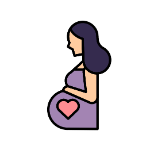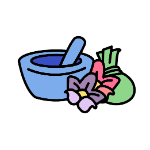
Confinement Food
Confinement Food: What To Eat And What To Avoid
10 min | Updated on 23-03-2023 by HappyPreggie
Confinement is a common practice in Asia that has a long history dating back centuries. When infant and maternal mortality rates were high back then, confinement helped keep babies and mummies indoors, protecting them from diseases and illnesses. So, confinement is a period for your body to recover and heal from childbirth. However, some mothers today consider this practice to be outdated and unnecessary. Following a strict diet, sticking to various lifestyle practices and paying extra attention to your health may seem tiring and restrictive. Still, confinement is actually a crucial part of pregnancy and childbirth that mothers must go through.
(Image credits to Phoenix Signature Kitchen)
One of the practices includes confinement food, which refers to a series of dishes and soups prepared during your confinement period. Confinement food is specially planned to nourish your body, help you recover after childbirth, and boost your newborn's breast milk supply. You will need more of the many essential nutrients than you did before pregnancy. Making healthy food choices every day can help you give what your baby needs to develop well. If you're breastfeeding, the food you eat will also help your baby grow strong and healthy!
Why is the Confinement Period Important?
(Image credits to Huiji)
Before we talk about confinement food, you must first understand why it is important to abide by the confinement period and rules. Below are some of the importance of the confinement period:
1. Prevent postpartum complications
If you don't take this confinement time to consume all the right food and recover properly, you may suffer from postpartum complications such as infection or sepsis, cardiomyopathy, and more, which may last for a lifetime and affect your life's quality. Confinement also allows you to live peacefully, away from the stress and pressure that might come from friends, families or other people. You can spend more time reflecting, recovering from negativity, and strengthening relationships with your closest family members. This can help prevent you from developing mental health issues such as postnatal depression.
2. Boost your health and promote recovery
The confinement period and confinement food come as a package - you can't recover well without the proper diet. Whether the food is prepared by your mother, mother-in-law or the confinement catering services you hire, it typically contains high amounts of nutrients. This will help you recover faster and return to a healthy state.
As a new mother, you must consume a lot of protein, calcium, and iron after childbirth. This is to help you recover, regain strength, protect your bones and generate new blood cells to replenish the blood lost during labour. However, this is just the tip of the iceberg, as there are many more nutrients you need to fully nourish every part of your body. Your usual daily meals may not contain sufficient nutrients, hence the importance of specially prepared confinement food.
3. Strengthen the bond between mother and baby
The confinement period also allows you to form and strengthen bonds with your newborn - by learning how to interact with them, understanding your baby's needs, and the best ways to take care of them. If you return to work or spend your time right after childbirth on other tasks and activities, it will not only cause harm to your own health but may also jeopardise your relationship with your little one.
Why Need To Be Careful With What You Eat After Pregnancy
(Image credits to Clookies)
You need to be careful with what you consume after giving birth because it will affect you and your baby. Some effects of a poor-quality diet after childbirth include:
a. Low-Quality Breast Milk
Babies, once delivered, will begin to breastfeed immediately, which means your body has to spend the last remnants of energy in creating breastmilk that your baby needs continuously. If you do not feed on a balanced diet, the milk quality will further be reduced. Research has proved now and again that an unbalanced diet that is not prepared in the right way is not suitable for your body's current condition. To overcome this, you can consult your doctor on the right type of vegetables and fruits to eat after childbirth and how they should be consumed.
b. Poor Growth of Your Baby
If your precious little one is breastfeeding on low-quality milk, it can directly affect your baby's health and might even affect their growth. Low-quality milk refers to breast milk with poor nutrient concentrations like vitamin A, vitamin B complex, vitamin C, omega 3, omega 6 and omega 9. As a result, your baby may have a poor immune system and could be susceptible to illness easily.
c. Poor Skin Health and Dull Complexion
Your skin condition reflects your nutrition status. If you're taking a poor diet, your skin will likely have a dull complexion and sometimes even inflammation. Furthermore, poor nutrition can also speed up skin ageing. When it comes to what not to eat after childbirth to avoid these skin issues, you will want to avoid having processed or canned foods as they tend to be high in salt, MSG, oil and other additives.
d. Slow Recovery
If you consume a poor diet, you'll take longer to recover from the effects of childbirth. If you do not replace the drainage with carefully selected healthy ingredients as your baby continues to breastfeed, you may appear weak, pale and sickly. However, if you maintain the quality confinement food consumption, you can recover quickly and resume your usual duties. Sooner than later, few will be able to tell you had recently delivered a baby because of how healthy you will look!
e. Infections
A poor diet can weaken your immune system, leaving you vulnerable to many diseases. The period after giving birth is the most critical, because your body, to a large extent, has lost its ability to fight infections. When you don’t take a balanced diet, you worsen your body's condition. This is why confinement food is designed to boost your immunity and prepare it to deal with the opportunistic diseases that may attack you during this period.
Best Foods To Consume During Confinement
(Image credits to Shopee)
- Ginger
Ginger can promote recovery after giving birth, and it’s believed to be a promising galactagogue which helps stimulate the production of breast milk in the first few days of postpartum.
- Turmeric
Turmeric is full of nutrients such as potassium, magnesium, fibre, vitamin B6 and vitamin C, which can help you fight infections and tackle indigestion issues.
- Black Pepper
Black pepper is a ‘heating’ food that can help heal the body, as many cultures believe that your pores are opened during delivery. You can add black pepper to your meals and use them to replace chilli.
- Oats
Oats bring your energy up and are high in minerals, vitamins, fibre and protein, which help fight constipation. It can also help you build and maintain your breast milk supply while breastfeeding.
- Salmon
Salmon is high in protein and zinc, which helps to heal your wounds and fight off postpartum depression. You can steam, bake, or fry it according to your preference.
- Almonds
Rich in vitamin E, almonds can help heal the itchiness from stretch marks. It also contains vitamin B12, omega 3 acids and a high amount of fibre to boost lactation and hormones for breast milk production.
- Green Vegetables
Spinach, broccoli, beans, peas and other green vegetables are high in vitamin A, vitamin C, iron and fibre. These help replenish your blood and ease back and joint pain. You can fry, steam, or cook them in soup.
- Legumes
Iron-rich beans, specifically dark-colored ones like black beans and kidney beans, are a great postpartum food.They are rich in lean protein, folate and fibre, which is especially important to fend off constipation - a common postpartum concern.
- Blueberries
Blueberries are not only yummy, but they are also filled with many vitamins and minerals that will give you a healthy dose of carbohydrates to maintain your energy levels.
- Brown Rice
While you may be tempted to immediately cut back on carbs to lose the baby weight, it may actually decrease breast milk production and leave you feeling sluggish. Instead, you can mix healthy, whole-grain carbs like brown rice into your diets to keep you energised. Brown rice can also provide your body the calories needed to make the best-quality milk for your baby.
- Lean meats
Protein is an important nutrient in postpartum, so lean meats are easily the best choice. They usually include beef, lamb, pork, chicken and turkey. They are meant to help your body recover and fix your skin inside and out. Lean meats also help balance blood sugar and zinc to support energy levels and help with healing and immunity.
Foods To Avoid During Confinement
(Image credits to Freepik)
- Caffeine
Although you may have already learned to limit your coffee intake during pregnancy, it can still be difficult to avoid it entirely after childbirth. However, caffeine can get into your breast milk and irritate your baby's digestive system as it is still weak. It can also elevate your heart rate and cause insomnia, so it's recommended that you avoid coffee as much as possible while you're breastfeeding. It's even advised to limit your chocolate intake as it contains caffeine..
- Spicy Food
Eating spicy food can cause discomfort to your baby while breastfeeding, although the level of discomfort varies between babies. It can also cause constipation, abdominal pain and bloating, affecting your uterus' recovery if it lasts for a long time.
- Citrus Fruits
Orange, lime and lemons can cause rashes or discomfort for your baby as it irritates their digestive system, especially if you consume them frequently and in large amounts.
- Seafood
While fish is a typical food of confinement diets, other seafood is not much recommended as they may contain high levels of mercury. This can cause gastric problems for your baby. However, you will want to avoid these fishes, too:
Swordfish, Shark, King Mackerel and Tilefish - These fishes have high levels of mercury, which is harmful to your growing baby's brain. If you eat tuna, eating up to 6 ounces of canned tuna a week is okay, but make sure to choose light tuna.
- Dairy Products
Dairy products such as cheese and yoghurt are another type of food that can irritate your stomach and cause discomfort. They can also cause allergic reactions, especially if you are lactose intolerant.
- Oily & Salty Foods
New mothers still have weak digestive systems, making them more prone to constipation and diarrhoea. Oily food can further irritate the intestine, while salty foods can cause water retention, thirst and reduction in lactation.
- Cold & Raw Foods
Cold foods, beverages, and raw food can upset your stomach and spleen, and prevent the discharge of toxic fluids from your body. ‘Cooling’ foods such as watermelon, pear, coconut, spinach and more are also included in this category.
- Alcohol
Alcohol can pass to your baby through breast milk, harming their brain and body development.
Confinement Meal Ideas
#1 Herbal Chicken Soup
(Image credits to Souper Diaries)
This meal aims to replenish blood, blood stasis removal and speed up recovery. It has the ability to strengthen the blood, nourish your reproductive organs, regulate menstruation, relieve period pains and help you recover from low energy or chronic fatigue symptoms. You will want to consume this especially during the first week of confinement.
Ingredients:
- 500 g chicken parts - skin removed
- Astragalus Root (Běi Qí) - 20 g
- Codonopsis Root (Dǎng shēn) - 20 g
- Solomon's Seal (Yù Zhú) - 20 g
- Chinese Angelica Root (Dāng Guī) - 10 g
- Dried Chinese Yam (Huái Shān) - 20g
- Dried wolfberries - 15 g
- Dried Figs - 4
- Dried Red Dates - 8
- Rhizoma Ligustici (Chuan Xiong) - 5 pieces
- Water (just enough to immerse all ingredients)
- Salt - to taste
#2 Pork Trotter (non-halal)
(Image credits to Asian Inspirations)
Pork Trotters are believed to help mothers with their milk lactation, hence it’s a very recommended confinement food. This meal is also believed to be warming, restorative and strengthening for a new mum’s body.
Ingredients:
- 1 pig's trotter (cut into chunks)
- 1kg old ginger (sliced thick, lightly crushed)
- 1½ tbsp sesame oil
- 750ml black vinegar
- 800g palm sugar
- 750ml water
- 3 hard-boiled eggs (shelled)
#3 Black Bean Soup (non-halal)
(Image credits to Asian Inspirations)
Black beans help nourish the blood and are also good for maintaining your overall health. Not only are they delicious, but they are also famous for being a rich source of protein, fibre and antioxidants.
Ingredients:
- 300g pork ribs (cut into pieces)
- 1 cup black beans (soaked for 1 hr, drained)
- 1.5L water
- 8 dried red dates
- 6 dried scallops (soaked until softened)
- Salt (to taste)
#4 Fried Turmeric Fish
(Image credits to Kuali.com)
Turmeric possesses an active ingredient called curcumin, a strong antioxidant and has anti-inflammatory effects, which helps fight pathogens to keep you healthy throughout your postpartum period. It can also boost your immune system and lower cholesterol.
Ingredients:
- 2 pcs fish
- 1/2tsp turmeric powder
- 2 cups cooking oil
- A pinch of salt to taste
#5 Singgang Fish (Singgang Ikan)
(Image credits to Resepi Che Nom)
Singgang is a popular Malay confinement dish, and rightly so because it contains many nutritious ingredients that can help your recovery.
Ingredients:
- 3 pcs of mackerels
- 2 inches of galangal
- 3 pcs of red onion
- 2 cloves of garlic
- 1-2 pcs of tamarind slice
- 5-6 pcs chilli
- 4 pcs of okra
- Salt and sugar
- Seasoning powder (optional)
#6 Harira
(Image credits to Pulses.org)
Harira is well-known for being a tasty and nutritious diet for Indians. The ingredients in Harira help reduce body pain you will experience after delivering a baby, reduce cramps after delivery, provide you with energy and can also increase lactation.
Ingredients:
- 1/2 lb uncooked meat (lamb, beef, or chicken) chopped into 1/2 pieces
- several soup bones (optional)
- 3 tbsp vegetable oil
- 1/4 cup cilantro
- 1/4 cup parsley, finely chopped
- 2 celery stalks with leaves, finely chopped
- 1 large onion, grated
- 1 handful of dry chickpeas, soaked and then peeled
- 1 tsp ground cinnamon
- 1 tbsp ground ginger
- 1 1/2 tsp pepper
- 1 tbsp salt
- 1/2 tsp turmeric
- 6 large tomatoes, peeled, seeded, and pureed
- 3 tbsp dry lentils, picked over and washed
- 3 tbsp tomato paste, mixed evenly into 1 or 2 cups of water
- 3 tbsp uncooked rice
- 1 cup flour
The confinement practice may seem outdated, but it has helped many new mothers through their toughest days. This practice is necessary because it can speed up physical recovery and give you time to adjust to your newborn. The pain experienced during delivery may affect your emotions, which can worsen with external disturbances. To get back on your feet, you'll need to eat healthily. A nutrient-dense diet full of all the vital nutrients can help fasten your recovery process. A healthy postpartum eating plan can replenish your iron stores, head off haemorrhoids and more.
Learn more on postpartum recovery at A Complete List Of Postpartum Care Essentials For Recovery.
Join the largest support network for family health and well-being. Ready to get started?
Get started
















